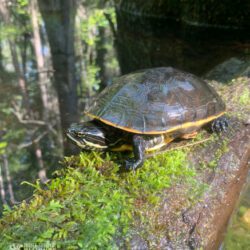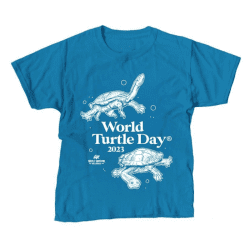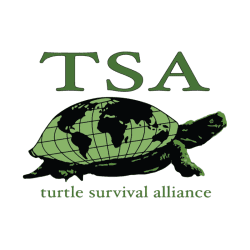 On Tuesday morning – day two of the workshop – the seventy workshop participants reviewed the “Red List,” an internationally recognized database of the world’s most vulnerable species. Participants from countries throughout Asia provided the most up-to-date information on the status of each species. A few were determined to be secure enough now to consider lowering their Red List status, but for a significant number of other species the group agreed that they are now at a greater risk of extinction than when previously reviewed.
On Tuesday morning – day two of the workshop – the seventy workshop participants reviewed the “Red List,” an internationally recognized database of the world’s most vulnerable species. Participants from countries throughout Asia provided the most up-to-date information on the status of each species. A few were determined to be secure enough now to consider lowering their Red List status, but for a significant number of other species the group agreed that they are now at a greater risk of extinction than when previously reviewed.
Despite numerous successes in captive breeding, habitat protection and community awareness, these dwindling species have suffered overwhelming stresses to their populations. Be it a poor fisherman trying to feed his family or a wildlife trader selling rare animals to an international collector for thousands of dollars, both result in animals being vacuumed from the wild.
During the meeting, trade figures were provided, showing a growth not only in wild caught animals but in farmed turtles.¬†¬† Over 180 million Chinese softshell turtles are hatched on Chinese farms annually for domestic consumption. In China’s turtle markets now, over 70% of turtles sold are farm-raised. Yet at the same time, many of these turtle farms are still taking in wild turtles to supplement their breeding stock.
The internet was highlighted as a significant factor in illegal trade. Facebook is now a major avenue for connecting collectors with black market dealers of illegal turtle and tortoise species. A Japanese TRAFFIC representative noted that a Brazilian endemic sideneck turtle can now fetch US$15,000 in the Japanese market.¬† She added, “If you want to photograph the world’s rarest turtles, come to see Japan’s pet shops.”¬† A representative of TRAFFIC Southeast Asia noted that in just one day of surfing the web, he found seven dealers offering the world’s rarest (and certainly illegal) tortoise – the Ploughshare Tortoise of Madagascar.
Final Thoughts: It’s important to remember that many of these endangered species may very well have gone extinct in the past decade if not for the efforts of the TSA and our Asian colleagues. The TSA’s mission is “Zero Turtle Extinctions in the 21st Century” and we have achieved that goal thus far. We are determined to keep fighting, and win this battle. Join us.
 








